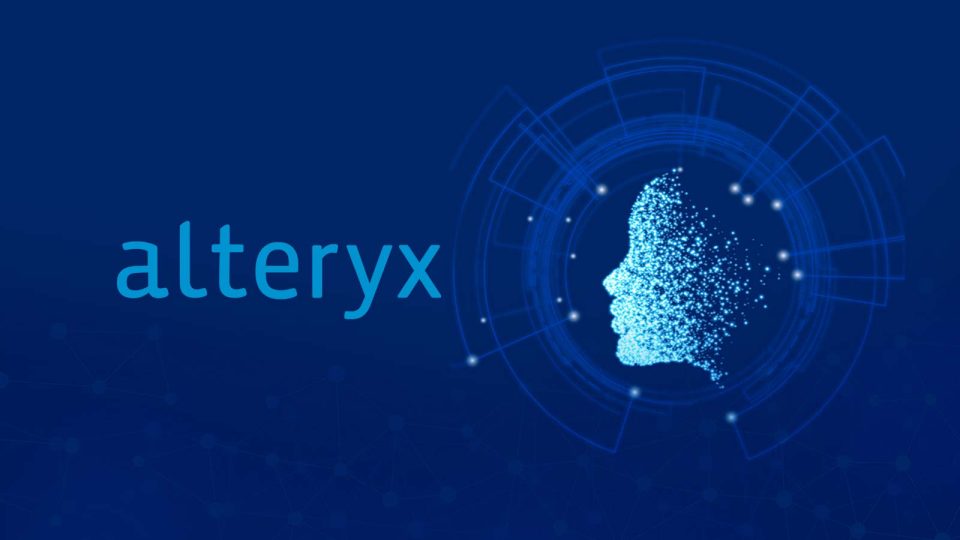Businesses overwhelmingly state the pervasive use of generative AI-driven automation will have the most impact on their organizations, and are responding to an AI world with increased focus on regulation and humanity
Alteryx the Analytics Cloud Platform company, released independent research titled Defining the Enterprise of the Future. Using data from 2,800 IT and business decision-makers globally, the study reveals the three-year roadmap for how enterprises will operate in an era of AI-delivered intelligence.
 CIO INFLUENCE News: Alteryx Appoints New SVP of Sales to Lead Americas
CIO INFLUENCE News: Alteryx Appoints New SVP of Sales to Lead Americas
As businesses prepare to navigate future challenges, embracing the power of accessible AI technology (and regulations) will help enterprises reinfuse transformations that shape the future, take the lead, and never look back. Results show that organizations have a strong appetite for policies and governance that regulate the use of responsible AI for this increasingly complex, data-driven future.
- 82% say that AI is already impacting what their organization can achieve, while 52% state they will invest in advanced technologies such as AI to respond to the changing market environment.
- 57% cite that AI uptake will become pervasive across all sectors and business functions, and 48% are excited about the combination of automation and AI in data analysis.
- 89% believe that regulations and standards around AI usage (including the use of generative AI) should be developed within their sector as it transforms the business landscape.
- 91% say that such policies would help businesses implement AI responsibly, and 49% cite the possibility of legal and ethical consequences from not having an ethical AI framework in place.
While the current AI landscape may fill the present employment market with fear and uncertainty, a ray of optimism emerges when envisioning the skills and talent needed to create the future workforce. There is a growing appreciation for prioritizing skills that are seen as distinctly human.
- 72% state that it is more important for their employees to be multi-skilled than specialized in a specific area. 61% named “creativity” the skill humans will contribute in a market environment shaped by AI, followed by “emotion” and “critical thinking”.
- No singular technical skill emerged as the most important for the future workforce, but expertise in emerging technologies such as AI (28%) followed by computer software knowledge, data analysis and data mining top the list. Creativity and digital literacy are considered essential future professional skills.
- Surprisingly, 62% believe the advanced tech talent landscape will be characterized by a talent surplus over the next three years.
CIO INFLUENCE News: Cloudian Delivers Groundbreaking Object Storage Performance and Efficiency with Next-Gen AMD / Micron Platform
When envisioning the future, most organizations advocate for the pervasive use of AI to predict and react to change, but longer-term risks stemming from the evolving business landscape loom. While many identify AI as a key potential tool for success, it requires a combined approach of people, policies, and culture rather than technology alone to enable enterprises to plan, navigate, and overcome the unknown to thrive in an ever-changing business landscape.
- 51% list cybersecurity and data privacy threats, 43% globalization challenges, 41% high inflation and interest rates, and 35% changing consumer behavior as the market factors expected to most impact businesses.
- Ultimately, technology alone will not drive future success. 42% will invest more in understanding customer needs to make relevant offers, while 34% cite their organizations’ need to demonstrate better ethical practices and environmental responsibility.
“While the future tech stack will require many emerging technologies, it will only be as good as your workforce’s ability to use and benefit from it,” said Trevor Schulze, CIO at Alteryx. “There is no one-size-fits-all solution to help businesses understand customer needs, drive efficiencies, and find their competitive edge. Only by empowering the entire workforce to take full advantage of the technologies to harness the data, compute, and automation resources available will you unlock full ROI potential and business value.”
To be prepared for this increasingly complex, data-driven future, companies need to establish three key characteristics: ensure their journey to digital transformation strategies surrounding AI is successful, build a multi-skilled workforce capable of delivering business value from technology, and be able to leverage customer and market insights to pivot business strategies and operations to respond to external factors.
CIO INFLUENCE News: Menlo Micro Releases a Superior High Frequency Ideal Switch Signal Relay Solution
[To share your insights with us, please write to sghosh@martechseries.com]


